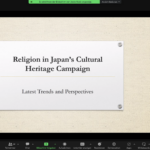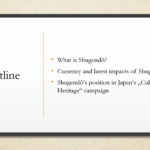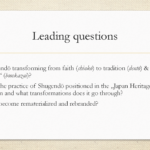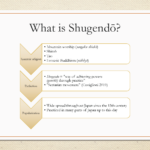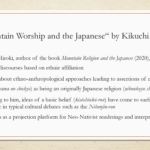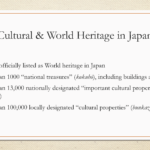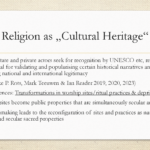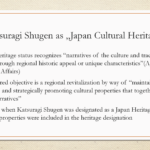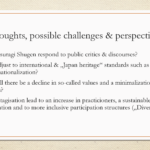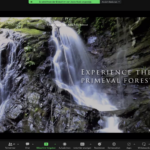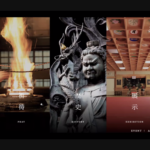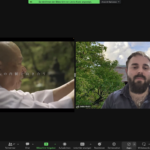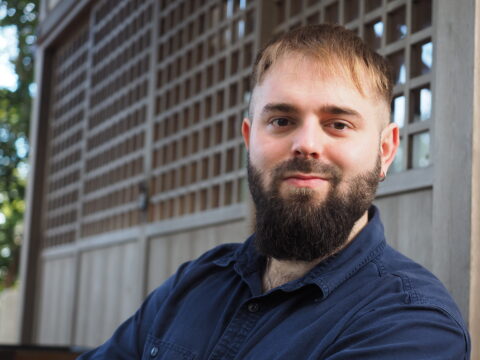
ダウンロード
場所
Online
登録情報
This is a past event. Registration is no longer possible.
DIJ Mailing Lists
Please subscribe below to stay informed about our research activities, events & publications:
Religion in Japan’s Cultural Heritage Campaign: Latest Trends and Perspectives
2024年1月24日
Josko Kozic, Heidelberg University/DIJ Tokyo
Slides © Josko Kozic
As part of the current nationwide campaign “Japan Cultural Heritage”, the religious tradition Shugendō has been listed as cultural heritage (bunka isan) by the Japanese Agency for Cultural Affairs. Ever since, this label has been used to promote one of the main areas of Shugendō practice in Wakayama, which offers “ascetic workshops” (shugyō taiken) aimed at laypeople, and to expand the tourist marketing of the region. Various practicing groups across the country are also expanding beyond their sanctuaries and gather in digital social networks, even creating new structures and collaborating with international groups practicing outside of Japan.
Shugendō is thereby involved in numerous debates, including political discussions on the environment and sustainability, national identity and, of course, cultural heritage. This lecture shed light on how practitioners of this religious tradition and external sectors are related to each other, be it through profit-oriented collaboration or conflicts of interest. This unfolds the current question of how religion influences socioeconomics and the imagination of “culture”. Latest field research by the speaker and his deep exchange with local stakeholders provided detailed insights into the cultural heritage campaign and the role Shugendō plays in it with regard to the Expo 2025 in Osaka.
Josko Kozic is a PhD candidate at Heidelberg University’s Institute for Religious Studies and currently a PhD student at the DIJ in Tokyo and research fellow at the Nanzan Institute for Religion and Culture. His main research project deals with the interconnectedness of religious practices, their socioeconomics, and their politics in terms of cultural heritage endeavors (including UNESCO). His current focus lies on the globally emerging practice of Japanese mountain worship and ascetic traditions, often summarised under the name of Shugendō.
